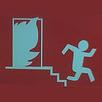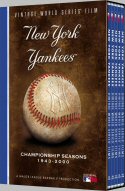|
Larry Mahnken and SG's | ||
|
| Replacement Level Yankees Weblog |

|
|
"Hey, it's free!" | ||
|
|
|
Larry Mahnken and SG's | ||
|
| Replacement Level Yankees Weblog |

|
|
"Hey, it's free!" | ||
|
|
|
Featuring: Larry Mahnken SG sjohnny TVerik Sean McNally Fabian McNally John Brattain This is an awesome FREE site, where you can win money and gift certificates with no skill involved! If you're bored, I HIGHLY recommend checking it out!
 
The New York Yankees Vintage World Series Films DVD Set, available from A&E. Yankees Tickets World Series Tickets MLB All Star Tickets NFL Tickets Purchase your Onlineseats.com is your #1 source for MLB tickets, NY Mets Tickets, Cubs Tickets, Yankees Tickets, Red Sox Tickets, Giants Tickets, Astros Tickets, Angels Tickets, Phillies Tickets.
Buy all your MLB Tickets,
Laser Keyboard Brazil Flowers TickCo.com for premium New York Yankees Tickets Boston Red Sox Tickets Chicago white Sox Tickets A's Tickets Angels Tickets New York Mets Tickets St Louis Cardinals Tickets Cubs Tickets Dodgers Tickets "I'm not a pessimist, I'm an optimist. Things are really worse than I say they are." - Steve South

January 2001 April 2003 May 2003 June 2003 July 2003 August 2003 September 2003 October 2003 November 2003 December 2003 January 2004 February 2004 March 2004 April 2004 May 2004 June 2004 July 2004 August 2004 September 2004 October 2004 November 2004 December 2004 January 2005 February 2005 March 2005 April 2005 May 2005 June 2005 July 2005 August 2005 September 2005 October 2005 November 2005 December 2005 January 2006 February 2006 March 2006 April 2006 May 2006 June 2006 July 2006 August 2006 September 2006 October 2006 November 2006 December 2006 January 2007 February 2007 March 2007 April 2007 May 2007 LINKS Yankees Sites and Columnists Nomaas.org General Baseball Sites & Columnists At Home Plate Rotoauthority.com The Book Blog - Playing the Percentages in Baseball(Tango, MGL, Dolphin) Yankees Blogs Almost Perfect Baby Bombers Baseball Mania Bronx Banter Bugs and Cranks Canyon of Heroes Dugout News Eephus Pitch Here Comes Number 27 High and Tight Lohud Yankees Blog No Sense Worrying Pinstripe Potentials River Ave. Blues Soft Hands The Stat Boy of the Empire Was Watching Yankees Chick Yankees Fans in Foreign Lands Yanks Blog Other Team Blogs Anaheim Angels All the Way Bucco Blog San Francisco Giants Blog Viva El Birdos Look what people have to say about Larry Mahnken's commentary! "Larry, can you be any more of a Yankee apologist?.... Just look past your Yankee myopia and try some objectivity." "Mr. Mahnken is enlightened."
"Wow, Larry. You've produced 25% of the comments on this thread and
said nothing meaningful. That's impressive, even for you."
"After reading all your postings and daily weblog...I believe you have truly become the Phil Pepe of this generation. Now this is not necessarily a good thing."
"you blog sucks, it reeds as it was written by the queer son of mike lupica and roids clemens. i could write a better column by letting a monkey fuk a typewriter. i dont need no 181 million dollar team to write a blog fukkk the spankeees"
"i think his followers have a different sexual preference than most men"
"Boring and predictable."
"Are you the biggest idiot ever?"
"I'm not qualified to write for online media, let alone mainstream
media."
This site is best viewed with a monitor.
|
Disclaimer: If you think this is the official website of the New York Yankees, you're an idiot. Go away. January 28, 2004
One in 1,654 by Larry Mahnken
I got an email from a reader Monday about the postseason and luck, and I'll reprint most of it here:
January 27, 2004
Well, that was worth Brandon Claussen by Larry Mahnken
The biggest question about the 2004 Yankees is whether or not they'll stay healthy. If the Yankees can keep away from injuries, they'll have one of the very best teams in baseball.
January 26, 2004
Automatic For The People by Larry Mahnken
If you've read Moneyball, or visit sites like Baseball Primer and Baseball Prospectus, you probably have heard of Vörös McCracken. McCracken, now a consultant for the Boston Red Sox (Booooo!), came up with a new way of evaluating pitchers a few years back (or, if you're RossCW, concocted an elaborate hoax that has taught us nothing about nothing).
January 13, 2004
Houston Rocket by Larry Mahnken
2003 was supposed to be Roger Clemens' last season. All year long he professed his intention to retire, and as the year wound down, he got the obligatory standing ovations as he left each mound for the last time. Every time someone asked, he reaffirmed his intentions, this was it, he was going home.
January 12, 2004
The New Face of Evil, Part Two by Larry Mahnken
As they say, pitching wins championships. It doesn’t--not anymore than hitting does--but someone said it long ago, it seems somewhat true, and people have just repeated it unthinkingly ever since. We statheads often do the same thing, but we’re really condescending about it.
January 8, 2004
Contacts and Updates by Larry Mahnken
My old email address is getting about 200 spam emails a day, so when I don't go online for, say, ten minutes, my mailbox fills up and I can't get any email. So, I've changed my address to this one, so direct your viruses and porn there.
The New Face of Evil, Part One by Larry Mahnken
The difference between the Yankees team that lost the World Series last season and the Yankees team that will win the World Series in 2004 is dramatic, and if you were a fan that stopped paying attention after Game Six and didn't hear anything about the team until Spring Training, the turnover in the roster would be jolting.
January 6, 2004
"OK Dad, I admit that I came back from the party at 3am when you saw me come in, and I'm sorry that I got caught. Am I still grounded for a month?" by Larry Mahnken
The big story in baseball Monday wasn’t the extension the Yankees signed with their new pitcher, Javier Vazquez, but the fact that Pete Rose, after a decade and a half of shamelessly lying to everyone who asked him for a straight answer, has finally admitted that he bet on baseball, and while I haven’t found a quote where he admits to betting on the Reds, his statements quite clearly spell out that he did--though he didn't think he was being corrupt, which makes it all okay.
January 5, 2004
This just in... by Larry Mahnken
O.J. Simpson has admitted to murdering Nicole Brown and Ron Goldman. Following this admission of guilt, the courts have decreed that he should be given back all of his stuff.
January 4, 2004
Hack hack cough cough cough hack cough hack hack cough by Larry Mahnken
What a crappy couple of weeks it’s been for me. I won’t bother you too much with the details, but to sum it all up, I’ve been very ill since before Christmas, missed more work than I could afford to, and then had to work ill just before Christmas, because, after all, I work retail, and you can’t call in on Christmas Eve. So, I’m exhausted, having serious financial problems, and feeling a little depressed for no good reason.
| ||||||||||